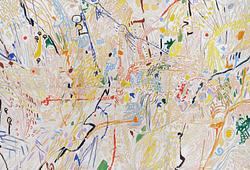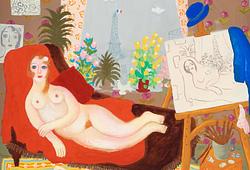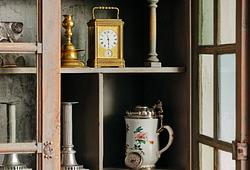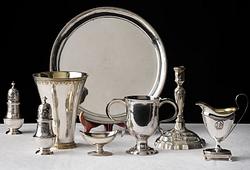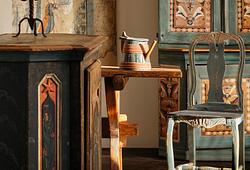Modern Art & Design presents Bröderna Malmströms Metallvarufabrik
Bröderna Malmströms Metallvarufabrik
Text by Eric Lindesvärd
Bröderna Malmströms Metallvarufabrik (1904–1974) holds a place among Scandinavia’s foremost lighting design manufacturers, alongside Arvid Böhlmarks lampfabrik, Elektriska AB Chr. Bergh & Co. (Cebe/Asea), Nordiska Kompaniet, and Ateljé Lyktan. Bröderna Malmströms’ technical expertise produced notable advancements, including Sweden’s first safety-marked lamp holder and six lighting patents.
The company was founded by the artisan brothers Sven and Hugo Malmström, who rapidly gained an international reputation in the lighting industry. The brothers, with their hundreds of skilled metalworkers in Malmö, rivaled Austrian and German manufacturers among others for commissions to create spectacular luminaires for clients in St. Petersburg, Russia. The foundation of their operation lay in their foundry, metalworking skills, and surface treatment, with gold bronzing as a specialty. (The company’s telegraphic address was ”gold bronce” in Swedish.)

In 1914, Johan Jakobsson, a goldsmith from Royal Purveyor jeweller Emil O Möller in Malmö, was hired. He swiftly ascended to the role of supervisor. His enduring impact on the company’s high quality standards is undeniable.
After a period of decline due to the global interwar crisis in the 1920s, M.Sc. K.G. Lindesvärd, previously a sales executive at Chr. Bergh & Co., took over the company in 1926. Goldsmith Jakobsson remained, and a period of renewal commenced, with K.G. as head of design and engineering and Jakobsson as head of manufacturing. However, the well-established name Bröderna Malmströms was wisely retained, as was the brothers’ renowned craftsmanship legacy.
Beginning in 1930, they distinguished themselves with hyper-modern, chrome-plated, functionalist luminaires. In 1933, Bröderna Malmströms issued Scandinavia’s largest design catalogue for public and industrial lighting, showcasing their modern product range.


One of the prestigious assignments from this period was the lighting fixtures for the Helsingborg Concert Hall designed by architect Sven Markelius. These luminaires are still in use today. Another notable commission was the special luminaires made entirely of nickel silver for the Swedish State Railways’ royal train car.
In 1939, Bröderna Malmströms received another prestigious assignment from Markelius: the New York World’s Fair. Here, a creative collaboration began with the young star architect Carl-Axel Acking, who was commissioned to design the interior of the Swedish pavilion’s international reception room for chief commissioner Folke Bernadotte and his business staff. This collaboration resulted in groundbreaking lighting product features, such as perforated brass reflectors, leather-clad pillars, and wicker-braided glass. The New York luminaires once again electrified Bröderna Malmströms’ presence on the world stage.
The collaboration with Carl-Axel Acking spanned many years, producing around forty products and several interiors. Other creative collaborations included those with Gunnar Asplund (Statens Bakteriologiska Laboratorium), Erik Lallerstedt (several Swedish post offices), Stig Blomberg (Kungl Veterinärhögskolan), Elias Svedberg (HSB’s head office), and Alvar Aalto (Edgar J. Kaufmann Conference Center, New York).
To the Catalogue

The lighting fixtures will be sold at Modern Art & Design
Viewing: May 14–19, Berzelii Park 1, Stockholm
Open May 14 12 PM–6 PM, weekdays 11 AM–6 PM, weekends 11 AM–4 PM
Live auction: May 20–21, Arsenalsgatan 2, Stockholm
Read more about Modern Art & Design
Selected objects from Bröderna Malmströms Metallvarufabrik på Modern Art & Design

Hammer price
240 000 SEK
Estimate
250 000 - 300 000 SEK

Hammer price
65 000 SEK
Estimate
80 000 - 100 000 SEK

Hammer price
80 000 SEK
Estimate
80 000 - 100 000 SEK

Hammer price
100 000 SEK
Estimate
80 000 - 100 000 SEK

Hammer price
65 000 SEK
Estimate
75 000 - 100 000 SEK
Requests & condition reports Contact specialist

Stockholm
Camilla Behrer
Head of Design/ Specialist Modern & Contemporary Decorative Art & Design
+46 (0)708 92 19 77
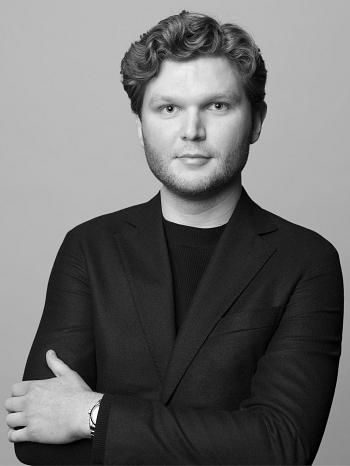
Stockholm
Karl Green
Specialist Modern and Contemporary Decorative Art & Design
+46 (0)700 07 94 25

Stockholm
Eva Seeman
Chief Specialist Modern and Contemporary Decorative art and design
+46 (0)708 92 19 69




